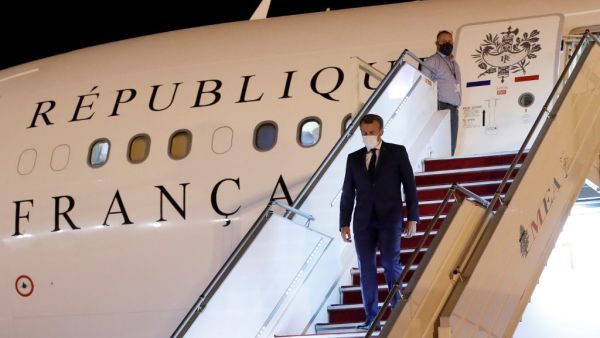The symbolism could not have been stronger. On Sept. 1, 1920, French Gen. Henri Gouraud, representing the French mandate authority, proclaimed the State of Greater Lebanon from the Pine Residence in Beirut.
On that day, Lebanon set out on its path toward independence, which it gained — for better or worse — 23 years later, on Nov. 22, 1943.
One hundred years later, as French President Emmanuel Macron inspected the devastation caused by the massive explosion of Aug. 4, 2020 at the Beirut port, Lebanese people, expressing their anger at the incompetence of the Lebanon’s authorities, called for the country to be placed under “French mandate for the coming 10 years.”
The French leader promised to return on Sept. 1 for the centenary celebrations of the creation of Lebanon. Meanwhile, Paris stepped up its efforts to support those affected by the explosion, and to urge Lebanese leaders to begin much-needed reforms to deal with the serious economic and financial crisis facing the country.
French Foreign Minister Jean-Yves Le Drian’s July 8 cri de coeur aimed at the Lebanese authorities — “Help us help you, dammit!” — reflected growing concern in Paris over the very future of Lebanon.
Relations between the two countries go back much further than the historic date in 1920, which only consecrated ties that were several hundreds of years old. One can trace the beginning of France’s links with Lebanon to St. Louis, the 13th-century monarch who recognized the Maronite nation in Mount Lebanon and was committed to ensuring its protection.
However, it was the capitulation agreements between the Ottoman empire under Suleiman the Magnificent and the European powers, including France, ruled by Francois I, that paved the way for France in the 14th century to forge deeper relations with the Lebanese, with the aim of defending the empire’s minorities, especially Christians.
In 1860, after the massacres of Christians in Mount Lebanon, the French, under Napoleon III, intervened militarily to restore order. This allowed the creation, on a political level, of the Mutasarrifate, an administrative authority that ushered in a period of stability until the First World War.
With the end of the Ottoman empire at the beginning of the 20th century, Lebanon was put under French mandate. Since then, Paris has always played a privileged role in the land of the cedars. Beirut was at the center of relations between these two entities, especially its port, which was largely destroyed in the Aug. 4 blast.
This article has been adapted from its original source.










